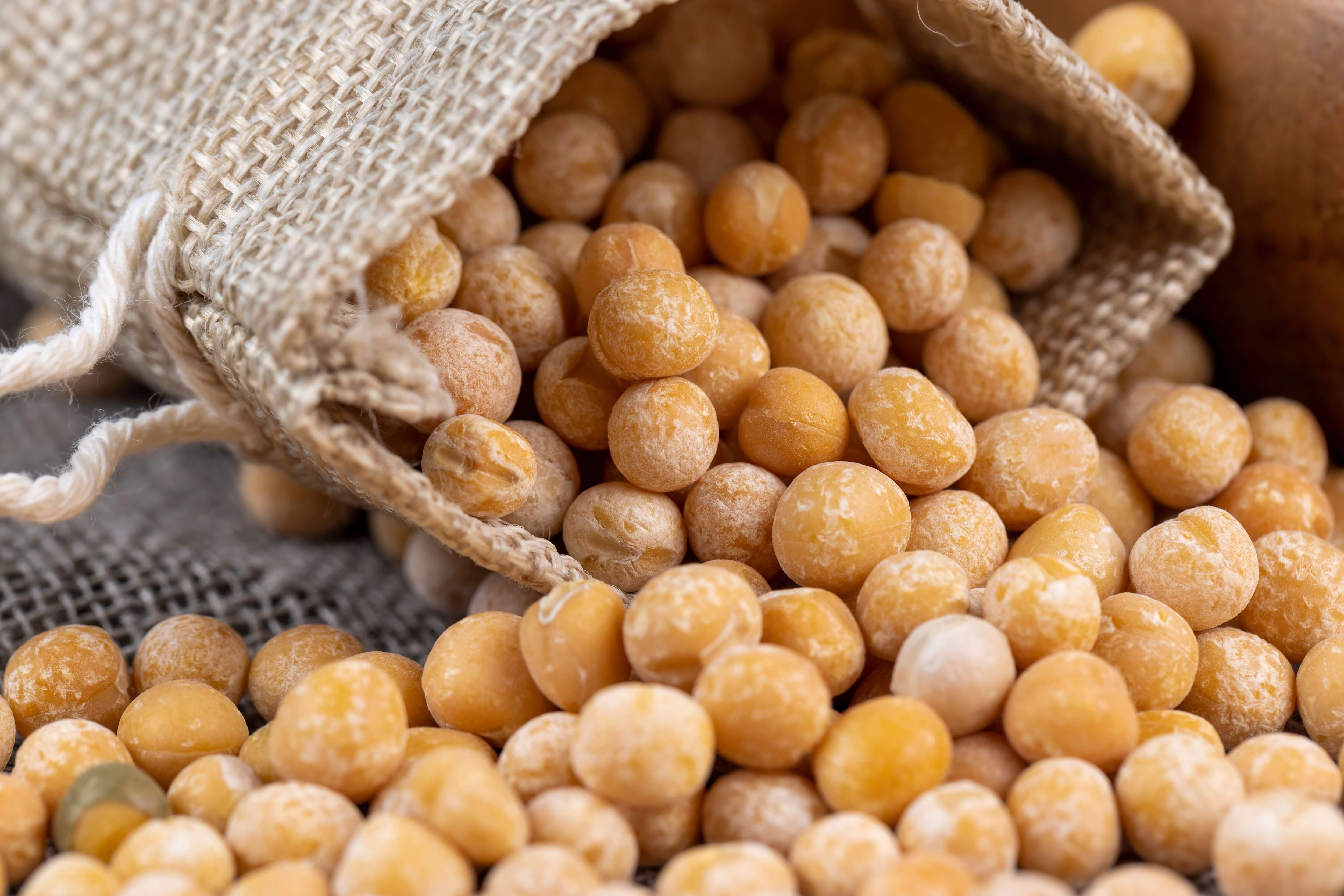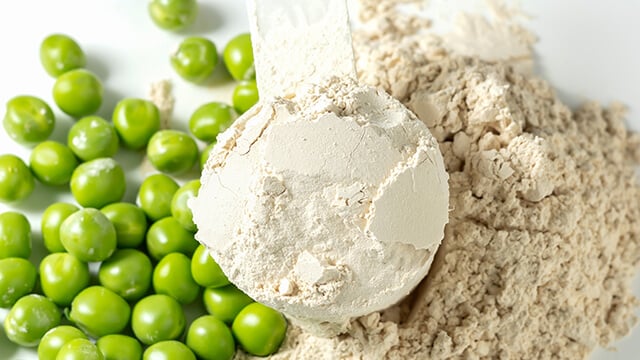Lantmännen digs deep to launch an exciting new yellow-pea-processing initiative
Lantmännen, a cooperative owned by Swedish farmers, accelerate the ambition in finding innovative solutions to bridging the global protein gap. The gap reflects the imbalance between food demand and supply, which is being put under increasing pressure by a growing world population heading for 9.8 billion by 2050 (UN, 2024).
DATE 2025-04-29
However, the leading agricultural cooperative, Lantmännen, is taking the initiative with an investment of around 105m euros in a ground-breaking new food processing plant in Lidköping, Sweden, that will be powered by Alfa Laval technology.
Ground-breaking because it represents a level of investment of this kind that is unprecedented in Sweden and also because the plant will mainly be processing yellow peas, which is a relatively new phenomenon around the world.
Magnus Kagevik, CEO and Group President of Lantmännen, says: “We need to produce more food to supply the world's growing population, and there is a global and long-term increasing demand for plant-based proteins as a food ingredient. The investment is an investment that will strengthen the entire value chain from farm to table. This means new cultivation opportunities for farmers and creates conditions for increased Swedish food production and export – which in turn is positive for Sweden’s food supply.”
From a sustainability perspective, peas and field beans are climate-smart crops and require relatively little water and plant nutrients while binding nitrogen in the soil. This means increasing their use in plant-based production will bring environmental benefits, and within Sweden, it will also mean less reliance on imported soy, resulting in saved food miles.
Meanwhile, the demand for plant-based protein is growing. It is mainly used as an ingredient in vegetarian foods and beverages, such as vegetarian mince, hamburgers, sausages, and pâté, as well as in sports drinks, gluten-free pasta, and bakery products.
The new plant will cement Lantmännen’s position as the leading player in the Northern European market for plant-based proteins and complement their existing range of sustainable grain-based proteins from wheat and oats.
Lars-Gunnar Edh, Lantmännen’s Head of the Energy Division, says: “We see a steadily increasing demand for plant-based proteins and together with our members, active Swedish farmers, we want to be a leader in this development and production. It is a long-term investment for Swedish agriculture and Swedish food production.”
Sumit Pingle adds: “There are not many of these kinds of projects out there, and they are significant because everybody knows that they are needed, but investment decisions can often be based on short-term factors. In this case, Lantmännen has had the courage to make a significant investment – and we are focused on doing our part at Alfa Laval to ensure its success.”
Alfa Laval is providing the ‘wet’ processing part of the operations, where protein, starch and fibres will be extracted between milling and drying when the plant launches into life, which is set for the first half of 2027.
The facility will produce around 7,000 tonnes of protein isolates annually from the processing of 35,000 tonnes of yellow peas and around 5,000 tonnes of fava beans by an extraction line made up of the latest technology, including separators, decanters and evaporators, which will be industry-leading in this vital area of food supply.
Sumit Pingle, Vice President Agro & Protein Systems at Alfa Laval, says: “Processing plants for the extraction of protein from yellow pea is gaining increased attention but only a few plants of this magnitude exist or are being built. Alfa Laval’s extensive equipment portfolio and process knowledge enabled us to carry out rigorous collaborative testing at our facility in Denmark to simulate the whole process. Producing plant-based protein is not new, of course, but the scale of the investment and the focus on yellow peas that we see in the market right now is really taking plant-based proteins to the next level.”

Compared to conventional beef, pork or chicken, plant-based protein products require up to 97 per cent less land and 30-50 per cent less energy to produce. They also emit far fewer greenhouse gases – up to 90 per cent less compared to conventional beef (UNEP, 2023).

Peas and field beans are climate-smart crops and require relatively little water and plant nutrients while binding nitrogen in the soil.

